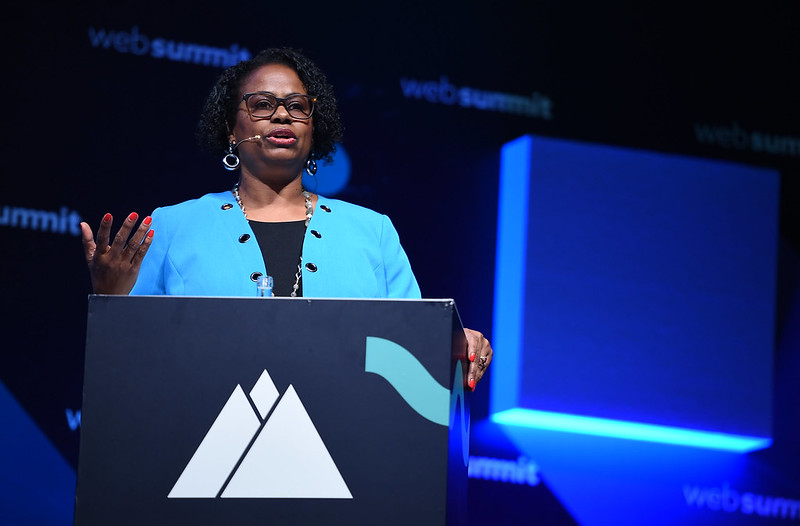In this article, we look at the efforts of the 23-year-old non-profit AnitaB.org and its founders’ hopes of achieving 50/50 male-female representation in the tech industry. The organization takes its name from the renowned computer scientist Anita Borg.
AnitaB.org’s CEO, Brenda Wilkerson, says diversity failures are unacceptable.

Wilkerson explains her disappointment in Silicon Valley’s failure to address and improve gender inclusivity. The entrepreneur and former computer programmer took the role of CEO at AnitaB.org almost two years ago.
Under Wilkerson’s guidance, AnitaB.org is pushing for a “moonshot” goal of attaining a 50/50 male-female gender split throughout the tech sector by the year 2025.
Wilkerson has adopted a more aggressive approach than her predecessors, knocking harder on the doors of leading corporations—and in some instances even shaming them. By adopting this tougher stance, Wilkerson hopes AnitaB.org can push the industry to attain 50/50 male-female diversity.
The world’s biggest tech companies are still mostly made up of white and Asian men.
Despite investing millions of dollars in diversity and inclusion efforts, companies like Apple, Google, and Facebook still struggle to engage and retain diverse talent. Each year, diversity reports boast of increases in hires from underrepresented groups, yet the reality is that retention either remains the same or falls.
In 2019, Congress questioned Facebook CEO Mark Zuckerberg, as well as several other high-ranking tech executives, about the patchy history of their companies in terms of diversity and how this is affecting their products.
Brenda Wilkerson states that AnitaB.org’s ultimate aim of achieving a 50/50 balance in the tech industry is a matter of “life or death,” though she admits it may be ambitious for Silicon Valley. Wilkerson has long been a champion of gender equality. She explains that while training to become a doctor, she learned that most drugs and procedures are only tested on men, leaving women potentially open to pain or dangerous side effects. Wilkerson says that the state of tech is eerily similar today, pointing out that inequality seems to “almost be an algorithm” today.
Diversity within the tech industry is important especially given the rise of automation and machine learning. If the people who build these technologies aren’t diverse, and if diverse user groups do not test them, these technologies can perpetuate bias, prejudice, and oppression. They can even be deadly. For instance, if the makers of self-driving cars fail to consider all prospective users and only employ white people in user testing, the cars may not be able to detect people with darker skin tones.
AnitaB.org is a global non-profit that is based in Belmont, California.
The organization was founded by computer scientists Telle Whitney and Anita Borg. Its main purpose is to engage, retain, and advance women in tech.
Telle Whitney served as AnitaB.org’s president and CEO from 2002 to 2017. Under her leadership, the organization expanded its programs and reach, adding a new awards program to recognize companies that support women in tech: the Anita Borg Top Company for Technical Women Award.
Anita Borg was a computer scientist, as well as a keen advocate for women in tech. Her ambition was to attain 50% representation for women in computer sciences by the year 2020. She passed away in 2003 at the age of 54 after being diagnosed with a brain tumor.
AnitaB.org hosts the Grace Hopper Celebration of Women in Computing Conference.
Named after the celebrated American computer scientist and US Navy rear admiral Grace Hopper, the conference is the world’s largest gathering of women technologists. It features both technical and career-focused sessions, keynotes, networking events, a career fair, a pitch competition, and more.
The first event was staged in 1994 as a conference presented by and for female computer scientists. Telle Whitney and Anita Borg met for dinner with a blank sheet of paper in order to plot their vision. The result, the inaugural Grace Hopper Celebration of Women in Computing Conference, took place in Washington, DC with more 500 women attending. Since then, more than a dozen conferences have been staged up to the present day. The 2019 conference attracted almost 25,000 people from 94 countries around the world.
AnitaB.org CEO Brenda Wilkerson seeks inclusion of marginalized groups as well as gender diversity.
Wilkerson points to a 2019 incident with Google’s face-tracing technology as indicative of a lack of inclusion in the industry. Contractors misled homeless individuals and people of color into participating in facial scans to train the latest Pixel smartphone’s facial detection technology. Speaking to CNBC, Wilkerson called the incident “abominable” and another event in a long line of incidents pointing to the dire need for diversity in tech. Had there been a more diverse range of people on the team, they likely would have recognized that doing this was wrong. In light of these revelations, Google suspended the testing.
AnitaB.org says it is not enough for companies to simply to hire a diversity officer. Too often, these leaders aren’t fully empowered to make necessary changes. Companies need to look internally and externally; they must implement meaningful change, from top to bottom, in order to become more inclusive. After all, diversity is not just good for people from marginalized groups. It has been proven to improve profitability. Diversity is good for business and society as a whole.

 Joanna (Jo) Riley is an entrepreneur, investor, and advocate in technology, and is currently the CEO and Co-Founder of Censia. Jo has a highly experienced background in building and scaling companies, which she attributes to her deep passion for people and building technologies that allow people to be their best selves. She brings her wide knowledge of the industry to better transform the way enterprise companies hire talent. You can connect with Joanna Riley at @joannakiddriley on
Joanna (Jo) Riley is an entrepreneur, investor, and advocate in technology, and is currently the CEO and Co-Founder of Censia. Jo has a highly experienced background in building and scaling companies, which she attributes to her deep passion for people and building technologies that allow people to be their best selves. She brings her wide knowledge of the industry to better transform the way enterprise companies hire talent. You can connect with Joanna Riley at @joannakiddriley on